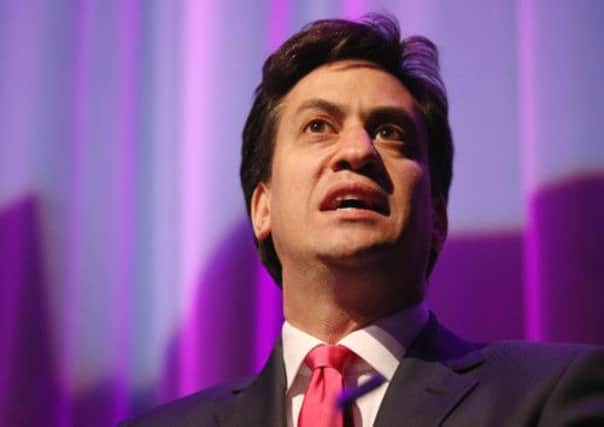Leaders: Labour | Alternative number to call police


It is not clear whether anyone has broken the law in this affair, which centres on the selection of a candidate to replaced troubled MP Eric Joyce, but Labour contends that some union members were registered to vote in the selection without their knowledge.
As with any matter involving the police, it is likely to take some time before they come to a judgment over whether this should be taken further in terms of referring it to prosecutors, but given what we already know about this murky affair we can come to some immediate conclusions.
Advertisement
Hide AdAdvertisement
Hide AdFirst, if people have been registered as local party members by the union in its haste to secure a nomination for its favoured candidate, that simply cannot be right, regardless of whether a criminal offence has been committed or not.
Secondly, if, as appears the case, other union members have been registered with their knowledge but their Labour membership fee was paid by Unite, this is at best questionable, even if the practice has been approved by the party. If union members want to join Labour and take part in selections they should pay for the privilege with their own money.
Third, the attempt by Unite and its general secretary, Len McCluskey, to get its candidate selected in Falkirk is just part of a very open campaign by the union to gets its members into winnable seats, thereby securing more influence over what it hopes will be a Labour government at Westminster.
While Labour does have historic ties with unions, and they have always played a part, sometimes a large one, in selections, this campaign has worrying implications for our wider democracy in that Unite contributes large sums of money to the party and might believe that “he who pays the piper calls the selection and policy tune”.
And it is this that exposes the most fundamental problem for the party and for Mr Miliband. When he defeated his brother David for the leadership Ed Miliband relied heavily on the support of unions like Unite, who thought him more to their liking than his Blairite brother.
Ed Miliband is now paying a heavy price for courting the small “l” labour movement block vote. Unite in particular is looking for payback for its support, but so blatant have been the methods that the Labour leader has been forced to disassociate himself from his erstwhile allies.
In moving to involve the police Mr Miliband hopes he will be seen as strong and decisive. However, this saga clearly has a long way to run yet and is likely to do the party more damage. For this Mr Miliband has only himself to blame as he pays the political price for his blinding ambition.
There’s a simple failure to connect
The idea of having an alternative number to call the police in cases which are not an emergency is a good one in principle. There are many times when members of the public want to report something but know it is not urgent and that it would inappropriate to call 999.
Advertisement
Hide AdAdvertisement
Hide AdHowever, as is often the case in public policy, what appears to be sensible in principle does not always work out in practice. So it has proved, in some instances at least, with the new 101 non-emergency call number.
According to new figures, thousands of calls simply were not answered in the four months since its launch. On more than 15,000 occasions, people hung up or were cut off before their call was answered.
Although this represents some 5 per cent of the total calls made to the Police Scotland hotline – and many people report the 101 service works well – it is simply not good enough that this number of people was not dealt with.
What is of equal concern is that the new number has failed to take the strain off the 999 service, despite being launched as an alternative way of reporting non-urgent crimes, passing on information or getting advice.
It is early days for this service, and we should allow Police Scotland and the Scottish Government time to examine the problems. However, if, for example, it is found that more staff are needed to prevent calls going unanswered then more staff there must be.
It would also be a good idea to give the new number some more publicity to try to ensure people know more about it and it does what it is supposed to do in taking the pressure off real emergency calls to 999.